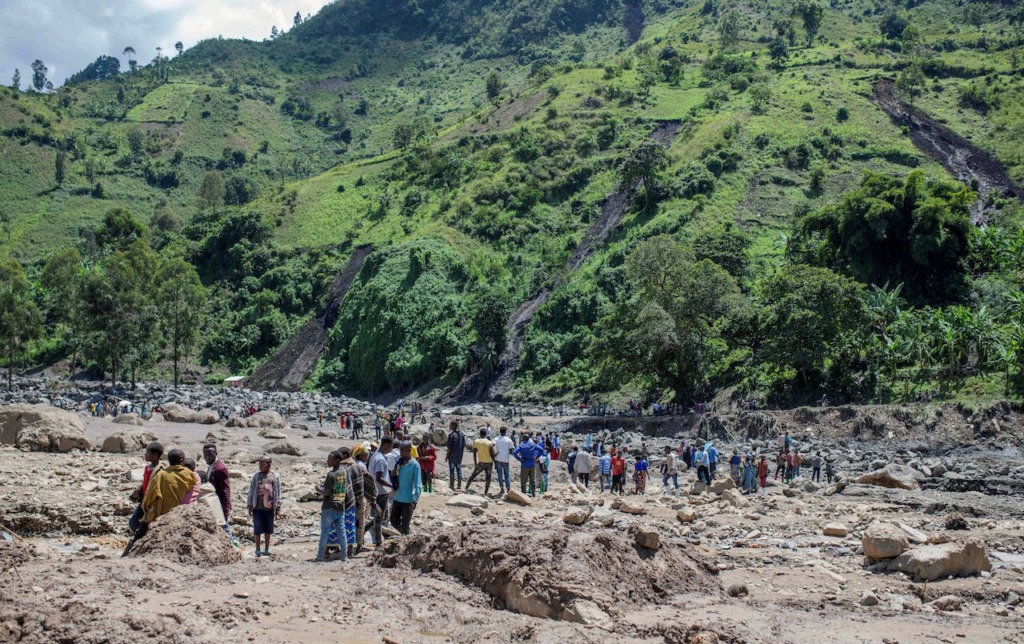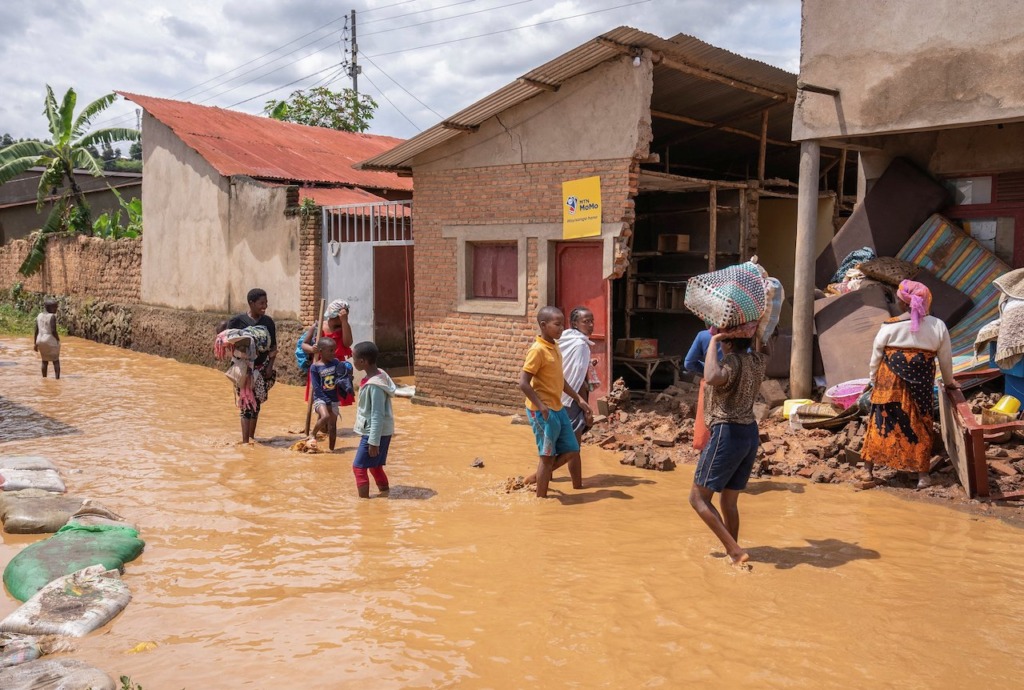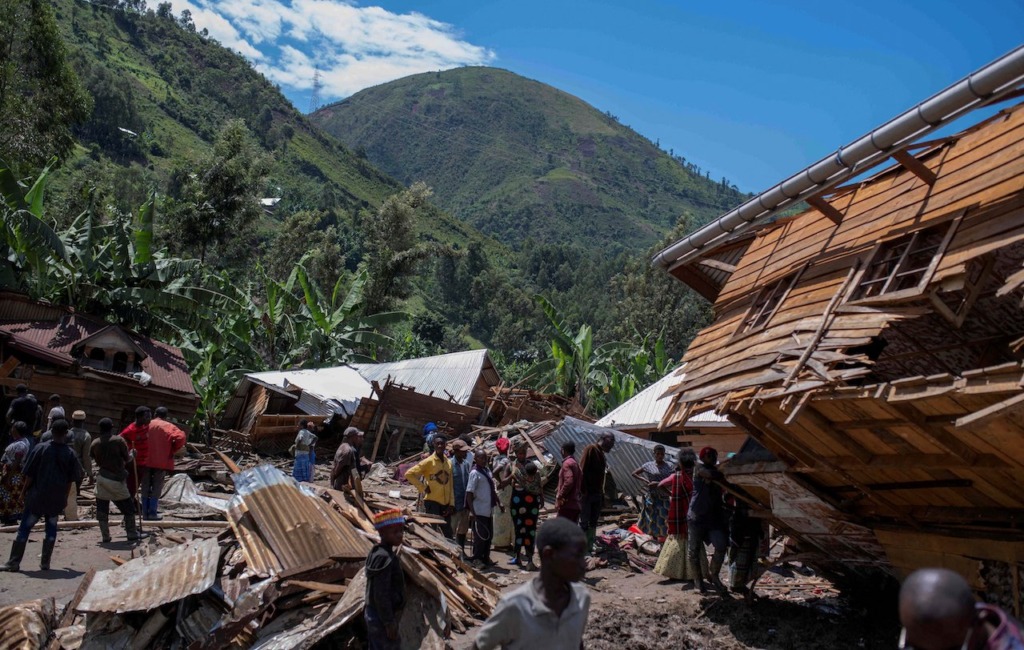(OSV News) – As the death toll from flooding and landslides in Congo surpassed 400, Catholic bishops in the country expressed their deep sorrow and called for support.
Archbishop Marcel Utembi Tapa of Kisangani, president of Congo’s bishops’ conference, said it was a sad moment for the church and the country as rescue workers continued to pull out bodies trapped in mud in the villages of Bushushu and Nyamukubi in Kalehe territory in South Kivu province.
The tragedy was ignited May 4 following days of heavy downpour in the region near the shores of Lake Kivu, triggering landslides and causing rivers to burst their banks. The resulting sludge covered homes, as it swept away people and farmlands.
“I urge the people to pray for those who have lost their lives. I call for help for the many affected by the floods,” Archbishop Tapa told OSV News in a telephone interview. “Many people have lost their homes and have been displaced. They have no food, shelter and other basic needs. They need help.”
Caritas – the humanitarian arm of the Catholic Church – is among the organizations that are responding to the disaster.
According to Bishop Emile Mushosho Matabaro of Doruma-Dungu, the local people have been the first responders.

“The local people have gathered what they can and are responding. There is some support that has also come from Kinshasa (the capital city). However, these are not enough,” Bishop Matabaro, who until recently was the vicar general of Bukavu Diocese where the disaster struck, told OSV News.
Officials said the situation is desperate, as families reported hundreds of missing persons. On May 8, the global Christian humanitarian organization World Vision said that over 4,000 people were missing and more than 100,000 had been displaced.

One devastated mother in Nyamukubi said her husband had survived and was in the hospital but all her children were gone. “It’s like the end of the world,” 27-year-old Gentille Ndagijimana, who also lost her parents and two sisters, told the AFP news agency.
“Last Thursday evening (May 4), the Nyamukubi and Chishova rivers overflowed their banks and washed away everything in their path. Homes, a market, two schools, a health center, a multipurpose hall and a warehouse were wiped out in one of the communities at the foot of the green hills of Kalehe,” Jean-Baptiste Mirindi, World Vision’s senior communications officer in Congo, said in a statement sent to OSV News May 8.
He said humanitarian agencies were facing difficulties reaching the affected people, since the floods had turned roads into impassable currents.
“We call on the international community and nongovernmental organizations to do everything they can to help us access communities where lives have been devastated by these floods. We must do everything we can to avoid further (loss of) life,” said Mirindi.
On May 8, President Felix Tshisekedi declared a day of mourning and sent a team of ministers to coordinate humanitarian efforts and the rescue operations.
Images posted on social media since May 5 showed rescuers and family members digging in the mudslides using their bare hands in searching for bodies. The teams were wrapping dead bodies in blankets due to a shortage of body bags. According to the United Nations Office for the Coordination of Humanitarian Affairs (OCHA), at least 3,000 families have been left without shelter.
Meanwhile, across the opposite side of Lake Kivu, floods killed at least 130 people in neighboring Rwanda. The floods struck the night of May 2 into May 3 in the northern and western provinces, destroying over 5,000 houses and displacing thousands to church compounds and schools.
Caritas operating in the Diocese of Nyundo in the west of Rwanda said the priorities include the distribution of food items, emergency relief non-food items, hygiene materials and shelter materials to support affected populations.
According to Father Jean Paul Rutakisha, director of regional Caritas, who spoke to OSV News, the organization has distributed food and non-food items to 280 households and sent mobile money transfers to another 209 with support from Trocaire, the humanitarian agency of the Irish Catholics.

